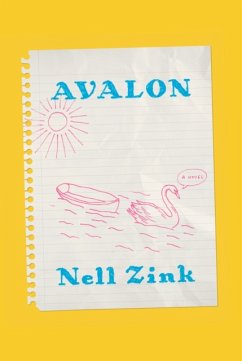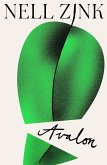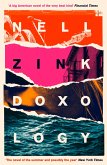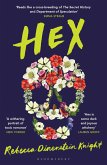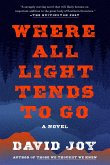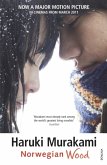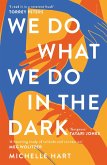I lay on my backpack, denying to myself that my arm was broken. The moon had made me think it was light enough to gambol down a mountain. The waterfall meadow, the tissue-paper leaves, the iceberg clouds and diamond rocks, the moon a puddle of dead frogs: looking down from the front steps, I had seen the world in shades of white. But it was black, a soft mix of hairlike grass and crumbly dirt that held me aloft, poised between Earth&rsquo s molten core and outer space, while I ran my fi ngers up and down my arm.
I sat upright. A smear of moonlight led to the Isle of Avalon. But there was no island, and my arm was fi ne. The more I kept probing around, the more okay it felt.
The night was warm. I took off my backpack and leaned back on my hands, looking up and out at the torn black fi rmament strewn with airplanes. The wind picked up and long grass tickled my face. I wondered whether my car would start. I heard a big dog snuffling, and Peter&rsquo s voice saying, &ldquo Whoa, slow down, Rabelais!&rdquo
He was coming closer. He had something more to say to me.
He stopped about ten feet behind me. I could hear by the scrabbling that he was holding the dog by its collar. He waited, but I could not look at him.
Softly he said, &ldquo Guess what? She called fi rst and told me to go to hell.&rdquo He paused. &ldquo What a fucking disaster. I don&rsquo t know who told her, but now there&rsquo s nothing . . .&rdquo He paused. &ldquo Nothing to keep us apart but this damn dog.&rdquo
The stars blurred with inexpressible happiness. Why would they do that? Is there any possible ethical justifi cation?
*
Avalon means &ldquo place with apples,&rdquo the healthy food that grows on trees. If you take good care of apples, they stay fresh all year. That&rsquo s why Arthur was taken to Avalon to heal his wounds.
On Easter Sunday 2005, when I was in fourth grade, my mother and common-law stepfather, Doug, took me there with my common-law stepbrother, Axel. The passenger ferry sailed from Long Beach, California, south of L.A. Whoever named the tourist-trap town on Santa Catalina Island &ldquo Avalon&rdquo presumably hoped to benefi t from the marketing cachet of King Arthur while evoking such additional mythical Western island paradises as Tí r na nÓ g, Emain Ablach, and Atlantis. &ldquo Avalon&rsquo s where Arthur lives,&rdquo my mother shouted, pointing at it and adding, &ldquo He&rsquo s not real.&rdquo Her world had a real-life king, the Dalai Lama. The ship plowed through low swells, steady as a train. Tormented seagulls tormented my ears with cries of torment, demanding French fries I did not have and would not have wanted to give up. Walleyed, impassive fl ying fi sh spoke their silent greetings&mdash patently magical beings, stiff and papery as they outpaced the ship, Arthur&rsquo s scaly heralds.
In Avalon, we rode in a glass-bottomed boat and saw wild goldfi sh. Then we ate burgers from an open-air stand. I was having a phase where I only wanted the patty with nothing on it, so Axel ate my bun. Catalina also has bison and antelopes, but we never set foot past the harbor.
Not long after our trip, my mother moved to a Tibetan Buddhist monastery, leaving me alone with Doug and his family. I still have the books she left behind: The Once and Future King. The Crystal Cave. The High King. She also left a bunch of Tolkien, but Doug sold it.
*
I have trouble recounting my childhood in chronological order. It appears in fragments, like a cored and sectioned apple. Put it back together, and the interior disappears. My earliest fi rsthand memory is of the soft feel of the long rectangle of dust behind an inch-thick steel plate&mdash the kind they use to cover holes during road construction, about four feet on a side, with two round holes so a crane can pick it up&mdash that leans against the cinder-block wall of a fertilizer shed at Bourdon Farms. The strange hush back there, the oblique light, the sharp odor. Under my pinkish-yellowish right hand, the littering of cement and rust untouched by irrigation or rain. I know I was almost a baby, because the steel plate is still there and the space behind it is tiny. Was I playing, or hiding, or both? I have no idea. The preponderance of my information is secondhand.
*
The Hendersons of Torrance, California, run a business that has been passed down through generations. Their house is fi lled with clan memorabilia, and so is the yard. A historic freezer, door still attached, contains a mildewed baseball bat decorated with Aztec temple scenes in a combination of wood-burning and enamel paint. A shallow well run dry contains a broken rocking chair with a handworked needlepoint seat. Doug once tried to use it as a sled on mud after a rain. It worked enough to try once, he told me, and then he threw it in the well. In childhood I turned the crisp black pages of green photo albums, recognizing our front porch behind a white-haired man at the wheel of a familiar 1920 Model T Ford. Long decommissioned, it stank of chickenshit. There had been no chickens in my lifetime.
The property is six-plus acres under the high-tension lines that run from La Fresa down to Redondo Beach. It stretches from road to ravine to road, with fences maintained by the power company, the perimeter traced by a dirt-bike trail where Grandpa Larry once ran races with his biker-barfl y best friends. The business is a plant nursery specializing in exotic imports and topiary. In 1978, California Proposition 13 limited local property taxes to one percent of a home&rsquo s 1976 assessment. Moves, additions, and new construction triggered punishing reassessments. To maintain conspicuous consumption while living in the same modest houses for fi fty years, rich people took up gardening. That was where Bourdon Farms came in.
Whether anything other than tropical plants ever arrives in those shipping containers bound to the port of Long Beach, and whether the Hendersons&rsquo motorcycling friends have anything to do with distributing it, I do not know. I was never considered a member of the family unless they wanted something from me.
As with many family businesses, the key to the enterprise&rsquo s viability is unpaid labor by women, children, and recent immigrants in need of a place to lie down. At best, gray market more likely, black. But revenuers do not fuck with the Hendersons. It would take the FBI, and it would take years. A simple search would turn up nothing. Nobody keeps the books or deposits money in the bank. They would apologize to the feds for knowing nothing (they reject federal authority on principle) and refer them to their imaginary absentee employer, Mr. Bourdon.
The land is on California&rsquo s statewide property inventory. I know that much. I fi gured it out using the internet at my high school&mdash that the land belongs to the state. I asked Doug about it. He told me that Great-Great-Grandpa Allan&rsquo s ranch stretched for miles, all the way to the Madrona wetlands, where he watered his cattle. The state condemned it by eminent domain to build the city of Torrance, compensating his heirs with an exemption from all applicable law in perpetuity. &ldquo That&rsquo s why we fl y the fl ag of the California Republic,&rdquo he explained, refer-ring to the state fl ag with its grizzly bear and red star. &ldquo It&rsquo s the one place left where a man can stand tall.&rdquo
The house is an Appalachian-style Cape Cod with vinyl siding and a tin roof, hunched on brick pillars over a low crawl space. Except for the TVs, which are always state-of-the-art, the furniture is an unchanging assortment of beat-up antiques, compounding the difficulty of sorting memories into epochs without using my own size as a reference.
Grandpa Larry occupied the master bedroom. At age two and a half I switched from sharing an upstairs room with Mom and Doug to sharing one with Axel. When I was six, I took over the unheated lean-to, which reeked of mice, outside what was once the back door. The lean-to had been added before the vinyl siding was put on, so my walls were made of pine and I could use thumbtacks to post pictures cut out of magazines. I had two doors and a tiny window that could not be opened.
Hinweis: Dieser Artikel kann nur an eine deutsche Lieferadresse ausgeliefert werden.
I sat upright. A smear of moonlight led to the Isle of Avalon. But there was no island, and my arm was fi ne. The more I kept probing around, the more okay it felt.
The night was warm. I took off my backpack and leaned back on my hands, looking up and out at the torn black fi rmament strewn with airplanes. The wind picked up and long grass tickled my face. I wondered whether my car would start. I heard a big dog snuffling, and Peter&rsquo s voice saying, &ldquo Whoa, slow down, Rabelais!&rdquo
He was coming closer. He had something more to say to me.
He stopped about ten feet behind me. I could hear by the scrabbling that he was holding the dog by its collar. He waited, but I could not look at him.
Softly he said, &ldquo Guess what? She called fi rst and told me to go to hell.&rdquo He paused. &ldquo What a fucking disaster. I don&rsquo t know who told her, but now there&rsquo s nothing . . .&rdquo He paused. &ldquo Nothing to keep us apart but this damn dog.&rdquo
The stars blurred with inexpressible happiness. Why would they do that? Is there any possible ethical justifi cation?
*
Avalon means &ldquo place with apples,&rdquo the healthy food that grows on trees. If you take good care of apples, they stay fresh all year. That&rsquo s why Arthur was taken to Avalon to heal his wounds.
On Easter Sunday 2005, when I was in fourth grade, my mother and common-law stepfather, Doug, took me there with my common-law stepbrother, Axel. The passenger ferry sailed from Long Beach, California, south of L.A. Whoever named the tourist-trap town on Santa Catalina Island &ldquo Avalon&rdquo presumably hoped to benefi t from the marketing cachet of King Arthur while evoking such additional mythical Western island paradises as Tí r na nÓ g, Emain Ablach, and Atlantis. &ldquo Avalon&rsquo s where Arthur lives,&rdquo my mother shouted, pointing at it and adding, &ldquo He&rsquo s not real.&rdquo Her world had a real-life king, the Dalai Lama. The ship plowed through low swells, steady as a train. Tormented seagulls tormented my ears with cries of torment, demanding French fries I did not have and would not have wanted to give up. Walleyed, impassive fl ying fi sh spoke their silent greetings&mdash patently magical beings, stiff and papery as they outpaced the ship, Arthur&rsquo s scaly heralds.
In Avalon, we rode in a glass-bottomed boat and saw wild goldfi sh. Then we ate burgers from an open-air stand. I was having a phase where I only wanted the patty with nothing on it, so Axel ate my bun. Catalina also has bison and antelopes, but we never set foot past the harbor.
Not long after our trip, my mother moved to a Tibetan Buddhist monastery, leaving me alone with Doug and his family. I still have the books she left behind: The Once and Future King. The Crystal Cave. The High King. She also left a bunch of Tolkien, but Doug sold it.
*
I have trouble recounting my childhood in chronological order. It appears in fragments, like a cored and sectioned apple. Put it back together, and the interior disappears. My earliest fi rsthand memory is of the soft feel of the long rectangle of dust behind an inch-thick steel plate&mdash the kind they use to cover holes during road construction, about four feet on a side, with two round holes so a crane can pick it up&mdash that leans against the cinder-block wall of a fertilizer shed at Bourdon Farms. The strange hush back there, the oblique light, the sharp odor. Under my pinkish-yellowish right hand, the littering of cement and rust untouched by irrigation or rain. I know I was almost a baby, because the steel plate is still there and the space behind it is tiny. Was I playing, or hiding, or both? I have no idea. The preponderance of my information is secondhand.
*
The Hendersons of Torrance, California, run a business that has been passed down through generations. Their house is fi lled with clan memorabilia, and so is the yard. A historic freezer, door still attached, contains a mildewed baseball bat decorated with Aztec temple scenes in a combination of wood-burning and enamel paint. A shallow well run dry contains a broken rocking chair with a handworked needlepoint seat. Doug once tried to use it as a sled on mud after a rain. It worked enough to try once, he told me, and then he threw it in the well. In childhood I turned the crisp black pages of green photo albums, recognizing our front porch behind a white-haired man at the wheel of a familiar 1920 Model T Ford. Long decommissioned, it stank of chickenshit. There had been no chickens in my lifetime.
The property is six-plus acres under the high-tension lines that run from La Fresa down to Redondo Beach. It stretches from road to ravine to road, with fences maintained by the power company, the perimeter traced by a dirt-bike trail where Grandpa Larry once ran races with his biker-barfl y best friends. The business is a plant nursery specializing in exotic imports and topiary. In 1978, California Proposition 13 limited local property taxes to one percent of a home&rsquo s 1976 assessment. Moves, additions, and new construction triggered punishing reassessments. To maintain conspicuous consumption while living in the same modest houses for fi fty years, rich people took up gardening. That was where Bourdon Farms came in.
Whether anything other than tropical plants ever arrives in those shipping containers bound to the port of Long Beach, and whether the Hendersons&rsquo motorcycling friends have anything to do with distributing it, I do not know. I was never considered a member of the family unless they wanted something from me.
As with many family businesses, the key to the enterprise&rsquo s viability is unpaid labor by women, children, and recent immigrants in need of a place to lie down. At best, gray market more likely, black. But revenuers do not fuck with the Hendersons. It would take the FBI, and it would take years. A simple search would turn up nothing. Nobody keeps the books or deposits money in the bank. They would apologize to the feds for knowing nothing (they reject federal authority on principle) and refer them to their imaginary absentee employer, Mr. Bourdon.
The land is on California&rsquo s statewide property inventory. I know that much. I fi gured it out using the internet at my high school&mdash that the land belongs to the state. I asked Doug about it. He told me that Great-Great-Grandpa Allan&rsquo s ranch stretched for miles, all the way to the Madrona wetlands, where he watered his cattle. The state condemned it by eminent domain to build the city of Torrance, compensating his heirs with an exemption from all applicable law in perpetuity. &ldquo That&rsquo s why we fl y the fl ag of the California Republic,&rdquo he explained, refer-ring to the state fl ag with its grizzly bear and red star. &ldquo It&rsquo s the one place left where a man can stand tall.&rdquo
The house is an Appalachian-style Cape Cod with vinyl siding and a tin roof, hunched on brick pillars over a low crawl space. Except for the TVs, which are always state-of-the-art, the furniture is an unchanging assortment of beat-up antiques, compounding the difficulty of sorting memories into epochs without using my own size as a reference.
Grandpa Larry occupied the master bedroom. At age two and a half I switched from sharing an upstairs room with Mom and Doug to sharing one with Axel. When I was six, I took over the unheated lean-to, which reeked of mice, outside what was once the back door. The lean-to had been added before the vinyl siding was put on, so my walls were made of pine and I could use thumbtacks to post pictures cut out of magazines. I had two doors and a tiny window that could not be opened.
Hinweis: Dieser Artikel kann nur an eine deutsche Lieferadresse ausgeliefert werden.

